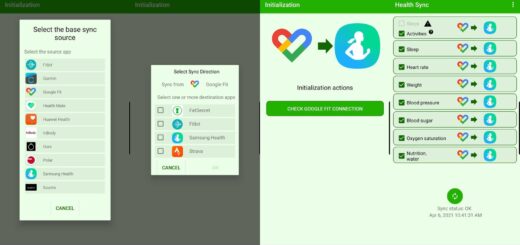Leveraging web analytics for social media marketing
Are you interested in harnessing the power of web analytics to boost your social media marketing efforts? With the rise of digital platforms and the increasing importance of data-driven strategies, leveraging web analytics has become essential for businesses striving to stay ahead in today’s competitive landscape. From optimizing your online store to measuring the success of influencer collaborations, web analytics provides valuable insights that can inform your marketing decisions and enhance your overall online presence. In this article, we will explore the various ways in which web analytics can empower your social media marketing campaigns, helping you drive engagement, increase conversions, and achieve your business goals. So, get ready to unlock the potential of web analytics and take your social media marketing to the next level!
Leveraging web analytics for social media marketing
Introduction to web analytics
Web analytics is the practice of collecting, analyzing, and reporting data from websites and online platforms to understand user behavior and optimize marketing strategies. In the realm of social media marketing, web analytics becomes a powerful tool to measure the effectiveness of campaigns, track user engagement, and make data-driven decisions to improve marketing efforts.
The importance of web analytics in social media marketing
In today’s digital age, social media marketing has become an essential component of any successful marketing strategy. With millions of users active on various social media platforms, businesses have a unique opportunity to reach and engage with their target audience. However, without proper measurement and analysis, it is impossible to determine the success of social media efforts.
This is where web analytics comes in. By using web analytics tools and metrics, businesses can gain valuable insights into how their social media campaigns are performing, identify areas for improvement, and make data-driven decisions to optimize their social media marketing efforts. Whether it’s tracking website traffic, analyzing conversion rates, or monitoring audience demographics, web analytics provides crucial information that can help businesses maximize their return on investment (ROI) in social media marketing.
Web analytics tools
Google Analytics
Google Analytics is one of the most popular web analytics tools and plays a vital role in social media marketing. It provides businesses with comprehensive insights into website traffic, user behavior, and conversions. By integrating Google Analytics with social media platforms, businesses can track the effectiveness of their social media campaigns, monitor referral traffic from social media, and gain valuable insights into user engagement.
Facebook Insights
For businesses that use Facebook as a primary social media platform, Facebook Insights is an essential web analytics tool. It provides detailed data on post reach, engagement, video views, and audience demographics. With Facebook Insights, businesses can identify the best-performing content, understand their audience better, and make data-driven decisions to improve their Facebook marketing strategy.
Twitter Analytics
For businesses using Twitter as a social media marketing platform, Twitter Analytics offers valuable insights into tweet performance, follower growth, and audience demographics. It allows businesses to track tweet impressions, engagements, and link clicks, helping them understand what types of content resonate best with their audience.
Instagram Insights
Instagram Insights is a web analytics tool specifically designed for businesses to measure the performance of their Instagram account. With Instagram Insights, businesses can track metrics such as post reach, impressions, profile visits, and audience demographics. This information can assist businesses in optimizing their Instagram content strategy and understanding the effectiveness of their Instagram marketing campaigns.

Key metrics in web analytics for social media marketing
Website traffic
Website traffic is a fundamental metric in web analytics for social media marketing. It measures the number of visitors to a website, the source of their visit, and the pages they interact with. By tracking website traffic, businesses can understand how effective their social media efforts are in driving traffic to their website.
Conversion rate
Conversion rate is a critical metric that measures the percentage of website visitors who take a desired action, such as making a purchase, signing up for a newsletter, or filling out a contact form. By analyzing the conversion rate from social media channels, businesses can evaluate the effectiveness of their social media campaigns in driving conversions and identify opportunities for improvement.
Bounce rate
Bounce rate refers to the percentage of visitors who leave a website after viewing only one page. A high bounce rate indicates that visitors are not finding what they are looking for or are not engaged enough to explore further. By analyzing bounce rates from social media traffic, businesses can identify potential issues with their website’s user experience or content and make necessary improvements.
Social media referral traffic
Social media referral traffic measures the number of website visitors who come from social media platforms. It provides insights into which social media channels are driving the most traffic and helps businesses determine where to focus their social media marketing efforts.
Setting up web analytics for social media platforms
Installing tracking code
To set up web analytics for social media platforms, businesses need to install tracking codes provided by web analytics tools, such as Google Analytics, on their websites. These tracking codes collect data on user behavior, such as page views, clicks, and conversions, and send it to the analytics tool for analysis.
Creating goals and conversions
Goals and conversions are crucial for measuring the success of social media campaigns. Businesses should set up goals in their web analytics tool to track specific actions, such as purchases, sign-ups, or form submissions, and assign a value to each conversion. By tracking these goals, businesses can measure the effectiveness of their social media campaigns in driving desired actions.
Linking social media accounts
To get a complete picture of how social media channels are driving website traffic and conversions, businesses should link their social media accounts to their web analytics tools. This allows businesses to see detailed data on how each social media platform is performing and make informed decisions to optimize their social media marketing strategies.

Using web analytics to measure social media campaign success
Monitoring website traffic from social media
One of the primary purposes of social media marketing is to drive traffic to a website. Web analytics plays a crucial role in measuring the success of this objective. By tracking website traffic from social media platforms, businesses can determine which channels are driving the most visitors and analyze the effectiveness of their social media campaigns in attracting the target audience.
Tracking conversion rate from social media channels
Beyond driving traffic, social media marketing aims to convert visitors into customers or leads. Web analytics allows businesses to track the conversion rate from social media channels, providing insights into which platforms are driving the most conversions. By analyzing these conversion rates, businesses can optimize their social media campaigns to improve their conversion rates.
Analyzing bounce rate from social media
Bounce rate is an essential metric to monitor in social media marketing. A high bounce rate indicates that visitors are leaving a website after visiting only one page, suggesting a lack of engagement or relevance. Web analytics helps businesses track the bounce rate from social media traffic, allowing them to identify issues that may be causing users to leave and make necessary improvements to their website or content.
Determining ROI of social media campaigns
Return on investment (ROI) is a critical metric for measuring the success of any marketing campaign, including social media marketing. Web analytics provides businesses with data on the revenue generated from social media campaigns, allowing them to calculate the ROI. By analyzing the ROI of social media campaigns, businesses can determine the effectiveness of their marketing efforts and allocate resources accordingly.
Leveraging web analytics to optimize social media advertising
Identifying the best-performing social media channels
With so many social media platforms available, businesses need to identify which channels are most effective in reaching their target audience. Web analytics helps businesses analyze the performance of each social media channel, providing insights into which platforms are driving the most website traffic, conversions, and engagement. By identifying the best-performing channels, businesses can allocate their advertising budget strategically and optimize their social media advertising efforts.
Analyzing audience demographics and behavior
Understanding the demographics and behavior of the target audience is crucial for successful social media advertising. Web analytics provides businesses with data on the age, gender, location, and interests of their website visitors coming from social media platforms. By analyzing this data, businesses can create targeted advertising campaigns that resonate with their audience and generate better results.
A/B testing ad creatives and copy
A/B testing is a powerful technique for optimizing social media advertising campaigns. By using web analytics, businesses can test different ad creatives, headlines, and copies to determine which variations perform best. By analyzing the data from A/B tests, businesses can make data-driven decisions to optimize their advertising campaigns and improve their return on investment.
Optimizing ad targeting based on web analytics data
Web analytics data provides businesses with valuable insights into their audience’s behavior and preferences. By analyzing this data, businesses can optimize their social media ad targeting to reach the most relevant audience. For example, if web analytics data shows that a particular age group or interest category generates the most conversions, businesses can adjust their ad targeting accordingly to maximize their advertising efforts.
Improving social media content strategy with web analytics
Identifying popular content and engagement trends
Web analytics allows businesses to identify the most popular content on their website that attracts users from social media platforms. By analyzing the engagement metrics, such as likes, comments, and shares, businesses can understand what types of content resonate best with their audience. This information can then be used to inform the content strategy on social media platforms and create more engaging and shareable content.
Analyzing click-through rates and engagement metrics
Click-through rate (CTR) and engagement metrics are essential in evaluating the effectiveness of social media content. Web analytics provides businesses with data on CTR from social media platforms, allowing them to measure the click-through rate of their content and identify areas for improvement. Additionally, engagement metrics such as likes, comments, and shares provide insights into how users are interacting with the content and help businesses understand what content drives the highest engagement.
Optimizing content based on web analytics insights
By analyzing web analytics data, businesses can gain valuable insights into how their content is performing on social media platforms. This data allows businesses to optimize their content strategy based on user behavior and preferences. For example, if analytics data shows that video content generates higher engagement than text-based posts, businesses can focus on creating more video content to maximize their social media presence.
Monitoring the effectiveness of social media campaigns
Web analytics is essential for monitoring the effectiveness of social media campaigns. By analyzing metrics such as website traffic, conversions, and engagement, businesses can track the performance of their campaigns and make data-driven decisions to optimize their social media marketing efforts. Regular monitoring of web analytics data allows businesses to identify trends, adjust their strategies, and ensure that their social media campaigns are delivering the desired results.
Using web analytics for social media customer segmentation
Analyzing customer demographics and interests
Web analytics provides businesses with detailed data on customer demographics and interests, allowing for effective segmentation of the target audience. By analyzing this data, businesses can identify common characteristics among their customers and create distinct customer segments based on demographics, interests, and behavior.
Segmenting customer data based on web analytics insights
Once businesses have identified common characteristics among their customers, they can use web analytics data to segment their customer data further. By segmenting customer data, businesses can personalize their social media marketing efforts and deliver targeted content and advertisements to specific customer segments, improving engagement and conversion rates.
Tailoring social media content to specific customer segments
Web analytics insights can help businesses tailor their social media content to specific customer segments. By understanding the preferences and interests of different segments, businesses can create content that resonates with each group individually. This targeted approach can lead to higher engagement, increased brand loyalty, and improved business outcomes.
Personalizing social media advertising based on customer data
Web analytics provides businesses with valuable data that can be used to personalize social media advertising. By analyzing customer data, businesses can deliver highly targeted advertisements to specific customer segments based on their demographics, interests, and past behavior. Personalized advertising is more likely to resonate with customers and result in higher conversion rates and ROI.
Web analytics for social media customer retention
Monitoring customer behavior and engagement
Web analytics allows businesses to monitor customer behavior and engagement on social media platforms. By tracking metrics such as comments, likes, shares, and mentions, businesses can assess how engaged their customers are and identify opportunities for improving customer retention.
Identifying potential churn
Churn refers to the rate at which customers discontinue their relationship with a business. Web analytics can help businesses identify potential churn by providing insights into customer behavior and engagement. By analyzing metrics such as decreased social media activity, decreased website visits, or decreased engagement with content, businesses can proactively address potential churn and implement strategies to retain customers.
Implementing targeted retention strategies
With the help of web analytics data, businesses can implement targeted retention strategies on social media platforms. By identifying customer segments at risk of churn, businesses can create personalized offers, incentives, or content to re-engage and retain these customers. Targeted retention strategies based on web analytics insights can significantly improve customer loyalty and increase customer lifetime value.
Measuring the effectiveness of customer retention efforts
Web analytics allows businesses to measure the effectiveness of their customer retention efforts on social media platforms. By tracking metrics such as increased engagement, increased repeat purchases, or increased customer satisfaction, businesses can evaluate the impact of their retention strategies. This data can then be used to further refine and optimize customer retention initiatives.
Conclusion
In the world of social media marketing, leveraging web analytics is essential for success. With the abundance of data available, businesses can gain valuable insights into their social media campaigns, drive website traffic, increase conversions, improve content strategy, and retain customers. By using web analytics tools, businesses can make informed and data-driven decisions to optimize their social media marketing efforts, maximize their return on investment, and stay ahead of the competition.
The power of web analytics in social media marketing
Web analytics provides businesses with a wealth of data that can be utilized to enhance their social media marketing strategies. By understanding how users interact with social media platforms, businesses can tailor their content, target their advertisements, and measure their success. The power of web analytics lies in its ability to transform data into actionable insights that can drive meaningful results.
Tips for leveraging web analytics effectively
-
Determine your goals: Clearly define what you want to achieve with your social media marketing efforts and set up corresponding goals in your web analytics tool.
-
Choose the right tools: Select web analytics tools that are compatible with your social media platforms and provide the necessary metrics and features to meet your goals.
-
Regularly monitor and analyze data: Continuously monitor and analyze web analytics data to track the performance of your social media campaigns, identify trends, and make data-driven decisions.
-
Test and optimize: A/B test different strategies, content, and ad variations to optimize your social media marketing efforts based on web analytics insights.
-
Keep up with industry trends: Stay updated with the latest developments in web analytics and social media marketing to stay ahead of the competition and leverage new opportunities.
By following these tips and embracing the power of web analytics, businesses can unlock the full potential of their social media marketing efforts and achieve significant growth and success.
















It's great that you talked about how business insurance can provide financial protection against unexpected events and help ensure the…
I like that you mentioned how business insurance is essential for protecting your bottom line and the long-term viability of…